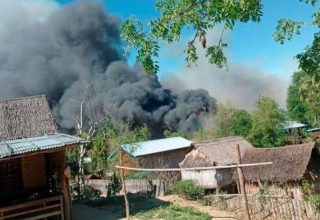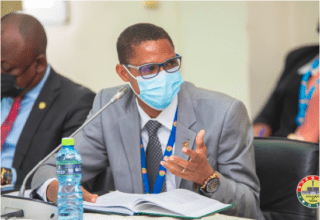
A call to Invest Now in Resilient Occupational Safety and Health (OSH) Systems
The International Labour Organization (ILO) on 28th April, 2021, as part of the World Day for Safety and Health at Work celebrations, the ILO deliberates on the theme “anticipate, prepare and respond to crises – invest now in resilient Occupational Safety and Health (OSH) systems”. Given that Ghana is a member of the ILO and has ratified some conventions, this article examines the state of OSH systems in Ghana in line with the aforementioned World Day for Safety and Health at Work theme.
Ghana experiences increased industrialization from national interventions, local entrepreneurship efforts, and foreign direct investment. Despite the blessings of industrialization, concerns about workplace safety have been on the rise. Such concerns include work-related deaths and injuries; and constant exposure to chemical, biological, psychological and physical stressors at work. In response to these, the country has since independence, introduced a number of legal instruments to control, manage, and resolve OSH issues. Among these legislations are the Ghana – Factories, Offices and Shops Act (No. 328 of 1970), Ghana Labour Act 2003 (Act 651), the Workman’s Compensation Law 1987, the Mining and Minerals Regulations 1970 LI 665, the Ghana Health Services and Teaching Hospital Act 526 (1999), the Environmental Protection Agency Act 1994 (Act 490), and the Radiation Protection Instrument LI 1559 of 1993 amongst others.
Though the intentions behind these legislations may be noble, common sentiments expressed by OSH practitioners and researchers point out to the lack of a national body to oversee the creation and enforcement of a national comprehensive OSH policy. As at now, the legislations cited earlier are under the mandate of different institutions such as the Department of Factories Inspectorate, the Inspectorate Division of the Minerals Commission, the Labour Commission, the Ghana Standards Board, the Ghana Atomic Energy Commission, the Ghana Road Safety Commission, the Food and Drugs Board, and the Environmental Protection Agency amongst others.
There is no common directive under all these legislations and institutions mandated to enforce them. As such, these systems overlap and are difficult to comprehensively enforce them.
Secondly, the legislations cover some core industries such as mining, manufacturing, shipping, health, and transport. Yet the question remains: are OSH issues only relevant in core industries? Are workers in the informal sector not entitled to benefits of robust national OSH systems? To what extent is decent work implemented and extended to all the Ghanaian workforce?
Pressing Demands of OSH Issues in Ghana
A major challenge in implementing robust OSH systems in Ghana is the lack of a comprehensive national OHS policy. As observed earlier, the legal provisions on OSH in Ghana are limited in scope, fragmented, and exclude most informal sectors as argued by Clarke (2005).
Further, a report from the Ministry of Health (2007) identified weak monitoring and controls, inadequate skilled OSH personnel, and weak OSH infrastructures as among the key impediments to resilient OSH systems in Ghana.
Again, the current legislations on OSH lack international standards and requirements. This is because the legislations do not cover an extensive OSH scope. And some relevant, modern OSH issues remain wanting in the legislations. As such, foreign firms in Ghana may have the leeway to engage in practices considered unacceptable in other jurisdictions as argued by Akorsu and Cooke (2011).
Another pressing OSH demand in Ghana is the incessant exposure to OSH risks such as recent cases of fire outbreaks that destroyed parts of the Kaneshie market, Odawna market, and Kumasi central markets. The fires affected the wares of hundreds of traders.
Finally, a rather pressing issue in Ghana has been the road traffic accidents which have led to several fatalities and permanent incapacitation.
Steps to a Resilient OSH System
- As is a global call, the first step which is long overdue is that, Ghana must develop a comprehensive national policy as proposed by ILO Convention 155.
- The national body to oversee the comprehensive national policy must be adequately empowered and resourced to effectively manage OSH issues on a national scale.
- More Ghanaians must be encouraged to pursue professional OSH education, training and qualifications.
- There must be continuous monitoring, improvement and revision of the proposed comprehensive national policy in line with OSH developments on national and international scale.
Most of the discussions on OSH shortfalls in the Ghanaian space are not new. However, the author of this article adds her voice to pressing calls made by other OSH professionals and international bodies. In the light of the theme for 2021 World Day for Safety and Health at Work, the author, on behalf of all workers in Ghana, demand action now.
Emily Esenam Akumah
(OSH Professional)
Source: Starrfm.com.gh




















